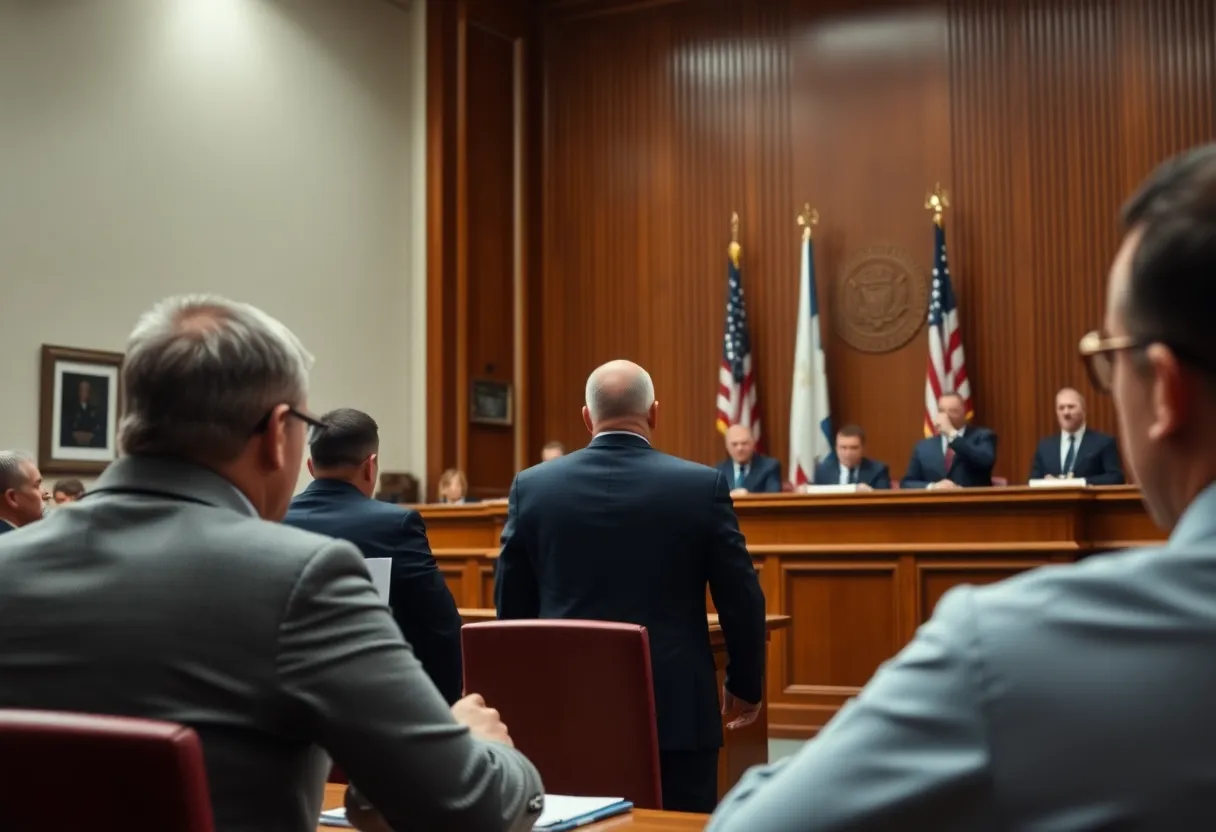News Summary
Business leaders in Nashville gathered to address the concerns surrounding President Trump’s trade tariffs at a forum hosted by the Tennessee Chamber of Commerce. The event highlighted the current economic landscape, especially focusing on the manufacturing sector and its vital role in Tennessee’s economy. Attendees expressed a mix of optimism and apprehension regarding the implications of tariffs on local businesses and potential retaliatory measures from international partners. With significant reliance on imports and uncertainties surrounding federal funding for infrastructure projects, the forum underscored the need for clarity in navigating these complex economic challenges.
Nashville Forum Highlights Concerns Over Trump’s Trade Tariffs
In the vibrant city of Nashville, business leaders gathered to discuss the reverberating effects of President Trump’s trade tariffs during a forum hosted by Tennessee’s Chamber of Commerce. The gathering took place at the historical Hermitage Hotel and aimed to shed light on the current economic landscape and the potential impact of federal policies, tax reform, and tariffs on local enterprises.
Manufacturing Sector: The Heart of Tennessee’s Economy
One crucial point presented by the CEO of Tennessee’s Chamber of Commerce, Josh Brown, was the pivotal role of manufacturing in the state’s economy. Manufacturing isn’t just a buzzword here; it’s a driving force providing over 153,000 jobs and raking in more than $34 billion annually through exports. The attendees acknowledged the impressive growth of Tennessee’s business environment and workforce. However, the looming uncertainty created by tariffs cast a shadow of concern over those positive sentiments.
Mixed Reactions to Tariffs
While some leaders spoke hopefully about Tennessee’s prospects, others voiced apprehension over trade tariffs’ implications for their businesses. There was a shared wait-and-see attitude, tempered by an understanding that the administration’s response to tariffs could have significant repercussions.
The Chief Strategy Officer of LG Chem articulated a challenge posed by the tariffs: they create complexities around sourcing machinery and raw materials from abroad, suggesting potential increased costs for local enterprises. In contrast, Nokian Tyres, a company with its North American headquarters in Dayton, Tennessee, feels more insulated due to its commitment to domestic manufacturing. Their CEO stressed the vital importance of having a flexible supply chain to navigate the unpredictable landscape.
Future Outlook for Local Tire Manufacturers
Interestingly, tire manufacturers like Hankook & Co. are planning to double production in Clarksville, showcasing resilience in the face of uncertainty brought about by tariffs. On the flip side, Bridgestone Americas expressed trepidation over the potential unknown consequences of automotive tariffs on their operations, adding to the complex dynamic of the local manufacturing scene.
Another notable point raised was the significant reliance on imports; currently, 63% of performance tires sold in the U.S. come from overseas. This statistic implies that tariffs could have a dual effect, potentially benefiting U.S. manufacturers by driving prices higher on imported tires.
International Reactions and Their Local Implications
Adding to the tension, Canadian Prime Minister Mike Carney hinted at possible retaliatory measures against U.S. tariffs. Such actions could directly impact critical Tennessee industries, including auto manufacturing and the whiskey sector, raising concerns among local business leaders.
The Uncertain Future of Infrastructure Projects
Furthermore, the state faces challenges related to federal funding for projects crucial for the electric vehicle infrastructure. President Trump’s recent order to pause fund disbursement for projects under the National Electric Vehicle Infrastructure Program has placed several initiatives in limbo, attracting scrutiny regarding their future viability.
Tennessee has secured $10.3 billion from the Inflation Reduction Act and the Bipartisan Infrastructure Law for infrastructure and energy projects. However, with the new administration’s policies, many of these projects could run into funding freezes, risking progress on electric vehicle manufacturing and infrastructure improvements.
A Call for Clarity Amid Confusion
In the wake of these significant changes, an executive order from Trump has led to widespread confusion, provoking legal challenges from a coalition of nonprofits seeking clarity on the affected programs. While some funds have already been allocated and may remain unaffected, uncertainty still hangs over ongoing and future funding for electric vehicle-related initiatives, leaving many stakeholders anxious about what lies ahead.
As the dust settles from this forum in Nashville, one thing remains clear: the interplay between tariffs, local businesses, and the broader economic landscape needs to be closely monitored. The coming months will surely reveal how these dynamics will play out for Tennessee’s economy and its hardworking citizens.
Deeper Dive: News & Info About This Topic
- Tennessean: Nokian Tyres Confident Amid Trump Auto Tariffs
- Tennessee Lookout: EVs in Tennessee – Uncertainty Abounds
- IBJ: Nashville Distiller Says Trump Policies May Present New Opportunities
- WKRN: How Possible Tariffs Could Impact Tennessee
- Food Manufacturing: Small Business Owners Brace for Trump’s Proposed Tariffs







